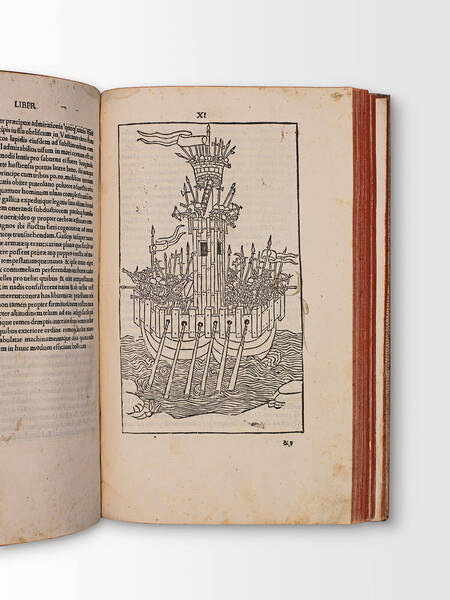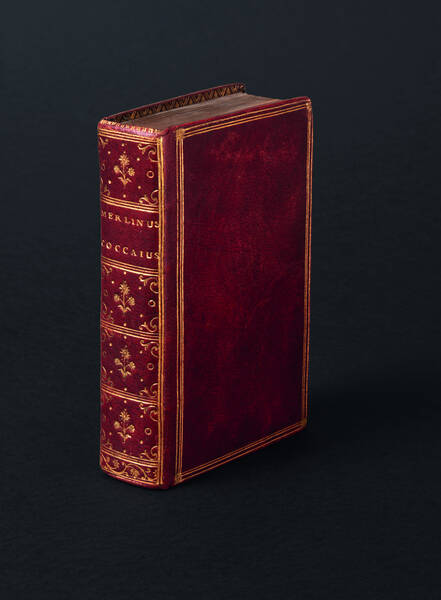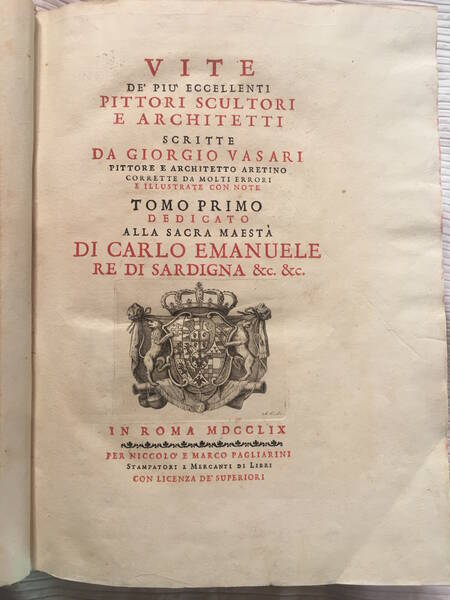EURIPIDES. Tragoediae septendecim ex quib.quaedam habent commentaria,et sunt hae. Hecuba Orestes Phoenissae Medea Hippolytys Alcestis Andromache Supplices Iphigenia in Aulide Iphigenia in Tauris Rhesus Troades Bacchae Cyclops Heraclidae Helena Ion.
Venice, Aldus Manutius., February 1503.Two volumes, octavo (163 x 100mm), [268]; [190] leaves, with all the five blanks; Aldine anchor and dolphin device at end of each volume. Contemporary limp vellum, yapp edges, flat spine with manuscript title and paper lettering-pieces. Spine slightly darkened but a very fine set.
Editio princeps of the most part of Euripides tragedies. Medea, Hippolitus, Alcestis and Andromache had been previously published at Florence ca. 1495 by Lorenzo de Alopa; Electra was not published until 1545. At the end of the second volume we find the Hercules Furens not mentioned in the title page, meanwhile included in the collection are the Resus, whose authorship is doubtful, and the Cyclops which is a satire and not a tragedy. In his preface to Demetrius Chalcondylas, Aldus indicates the edition consisted of one thousand copies and announces the imminent publication of the scholia to seven of the plays, but these were not printed until Giunta's edition of 1534. “Dans sa préface à Demetrius Chalcondylas, Alde fait entendre qu'il tiroit ordinairement ses èditions in-8° a mille exemplaires environ: “Mille et amplius boni alicujus auctoris volumina singulo quoq; mense emittimus ex Academia nostra.” Dans la préface du Catulle, Tibulle et Properce, du 1502, il dit cependent avoir tire de cette édition plus de trois mille volumes ad tria millia voluminum et plus. Effectivment Catulle, Tibulle et Properce, ètoient à la portée d'un plus grand nombre de lecteurs que les tragédies d'Euripide, et sont d'ailleurs maintenant moins rare de cette edition que l'Euripide, ou bien Alde considéroit les tres autores comme faisant chacun un volume, ce qui feroit justement le nombre de mille pour le tirage de l'édition. On se rappelle que, dans la fameuse liste de l' Evêque d'Aleria, les ouvrages en deux volumes, tirés à 275 exemplaires, soint ainsi désignés: DL volumina, en cumulant le nombre du tirage de chacun des volumes.” (Renouard). The Greek type used by Aldus here is the same introduced for the first time six months earlier for the Sophocles. It is the smallest Greek type so far and better cut than the previous ones; it is probably the best Greek type used by Aldus. Aldus' edition remained the most important printed text of Euripides until the 18th century.
Renouard 43/10; Dibdin I 524
Other Books
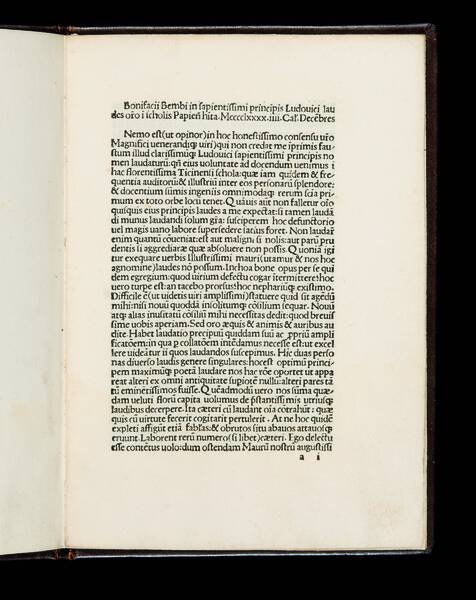
BEMBO, Bonifacio
In sapientissimi principis Ludovici laudes or(ati)o i(n) scholis Papien(sibus) h(ab)ita.
SOLD OUT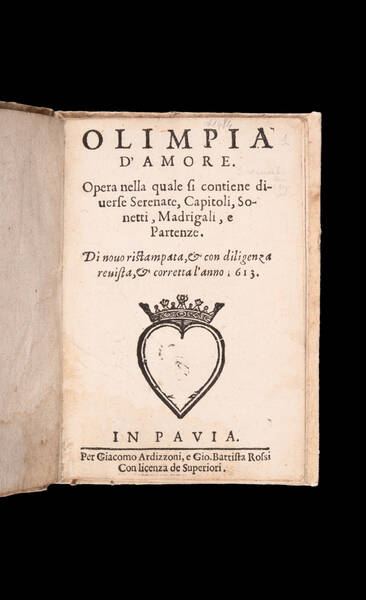
[ALESSANDRI, Baldassarre Olimpo]
Olimpia d'amore. Opera nella quale si contiene diverse serenate, capitoli, sonetti, madrigali e partenze.
€ 800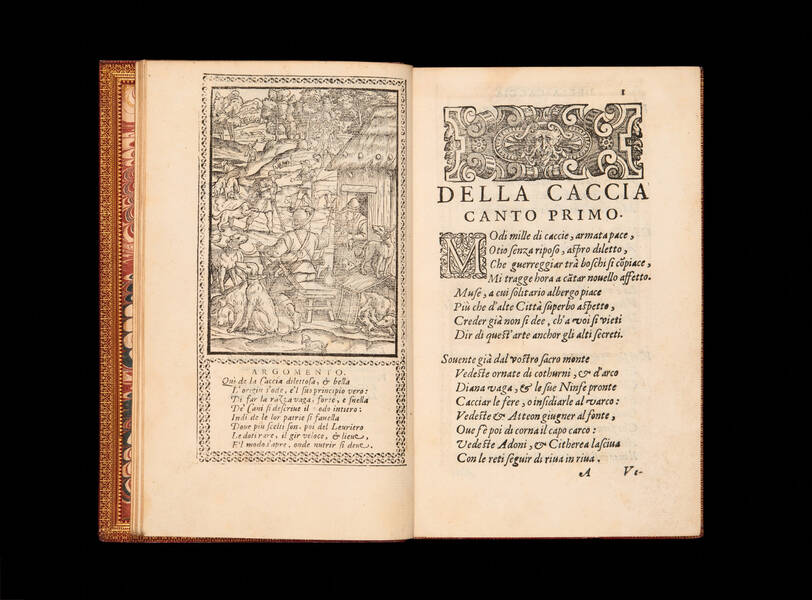
VALVASONE, Erasmo da
Della caccia poema del signor Erasmo di Valuasone. All'ill. signor Cesare di Valuasone suo nepote. Con gli argomenti a ciascun canto del sig. Gio....
€ 3.500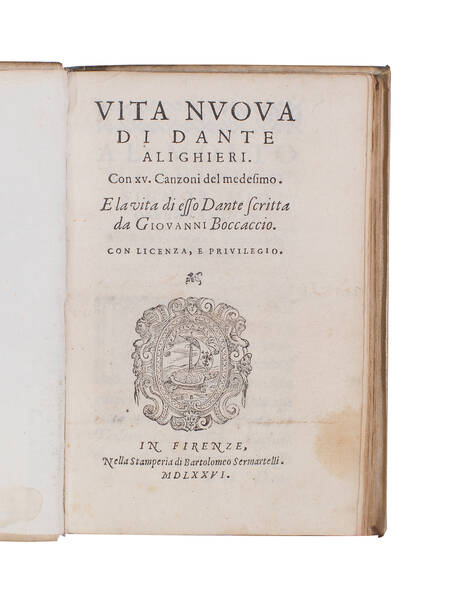
ALIGHIERI, Dante
Vita nuoua di Dante Alighieri. Con XV canzoni del medesimo. E la vita di esso Dante scritta da Giouanni Boccaccio
SOLD OUT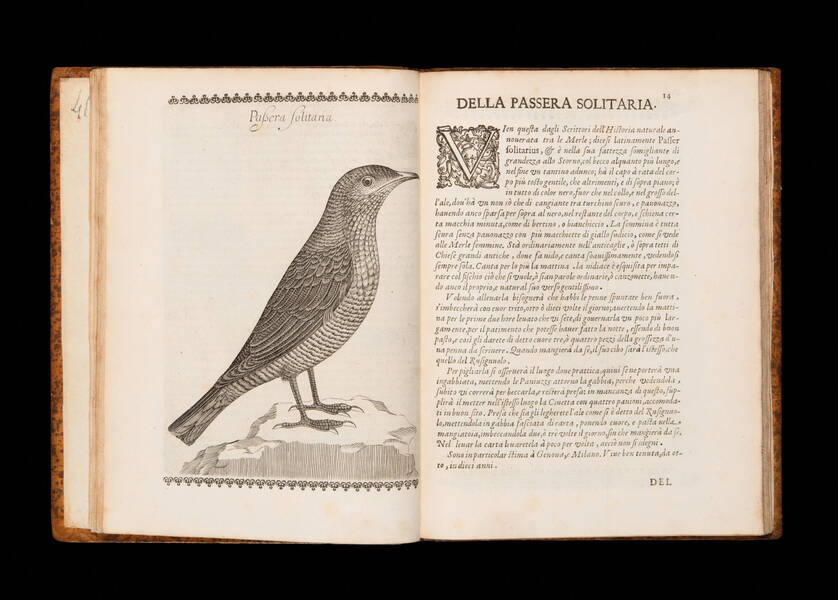
OLINA, Giovanni Pietro
Vccelliera ouero discorso della natura, e proprieta di diuersi vccelli, e in particolare di que' che cantano. Con il modo di prendergli, conoscergli,...
€ 6.000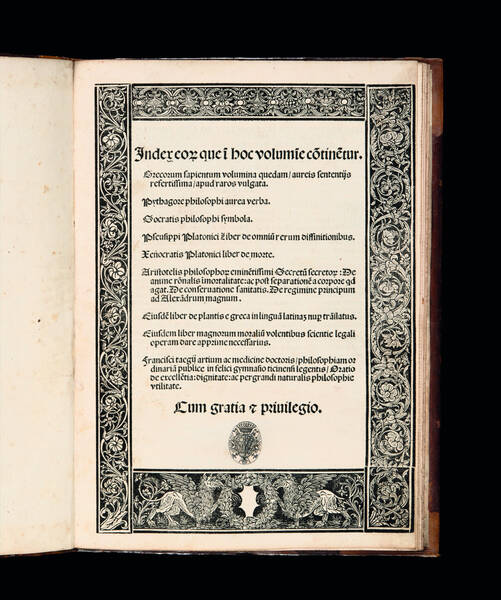
TAEGIO, Francesco
Grecorum sapientum volumina quedam aureis sententijs refertissima apud raros vulgata. Pythagore Aurea verba. Socratis Symbola. Pseusippi Platonici...
€ 12.000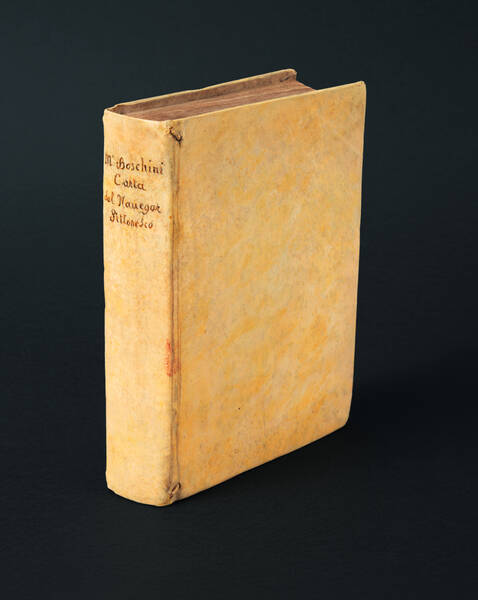
BOSCHINI, Marco
La carta del nauegar pitoresco dialogo tra vn senator venetian deletante, e vn professor de pitura, soto nome d'ecelenza, e de compare. Comparti' in...
€ 7.000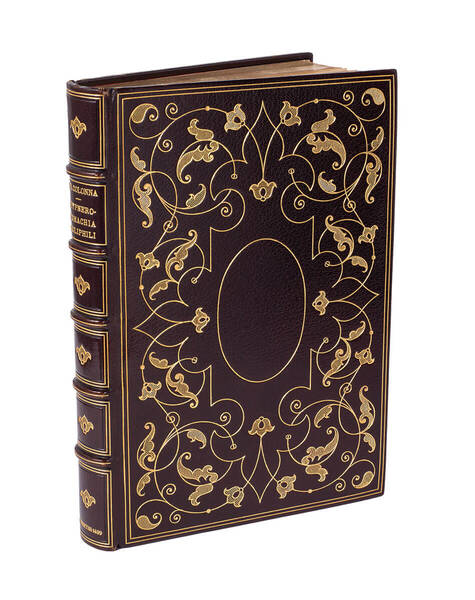
COLONNA, Francesco
Hypnerotomachia Poliphili, ubi humana omnia non nisi somnium esse docet atque obiter plurima scitu sanequam digna commemorat.
SOLD OUT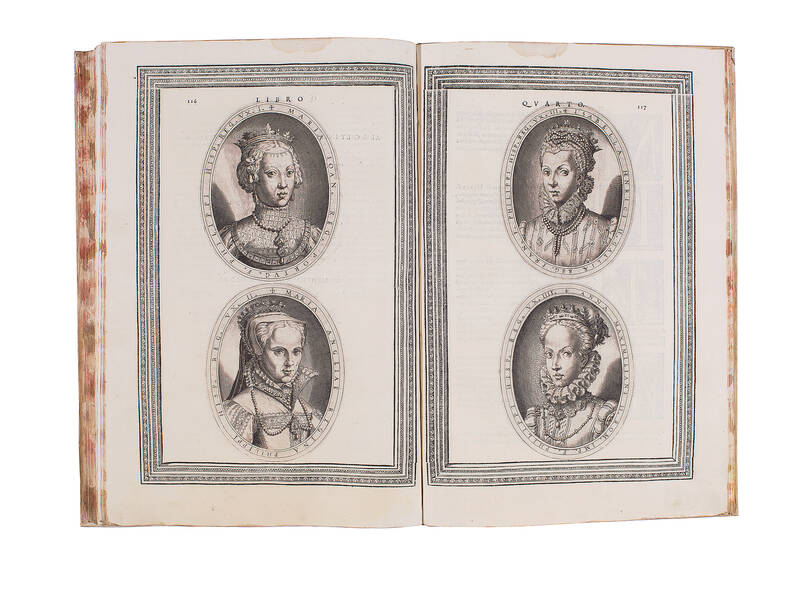
CAMPO, Antonio
Cremona fedelissima città et nobilissima colonia de romani rappresentata in disegno col suo contado et illustrata d'vna breue historia delle cose piu...
€ 15.000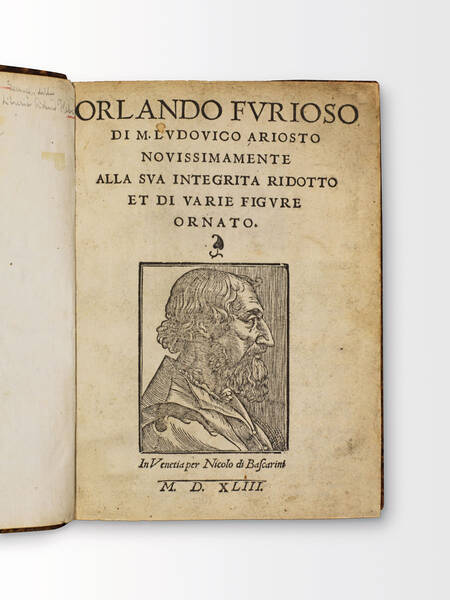
ARIOSTO, Ludovico
Orlando Furioso di M. Ludovico Ariosto novissimamente alla sua integrità ridotto et di varie figure ornato.
SOLD OUTMEDA RIQUIER rare books ltd.
4 Bury Street St James's
SW1Y 6AB London
Phone +44 (0) 7770457377
info@medariquier.com
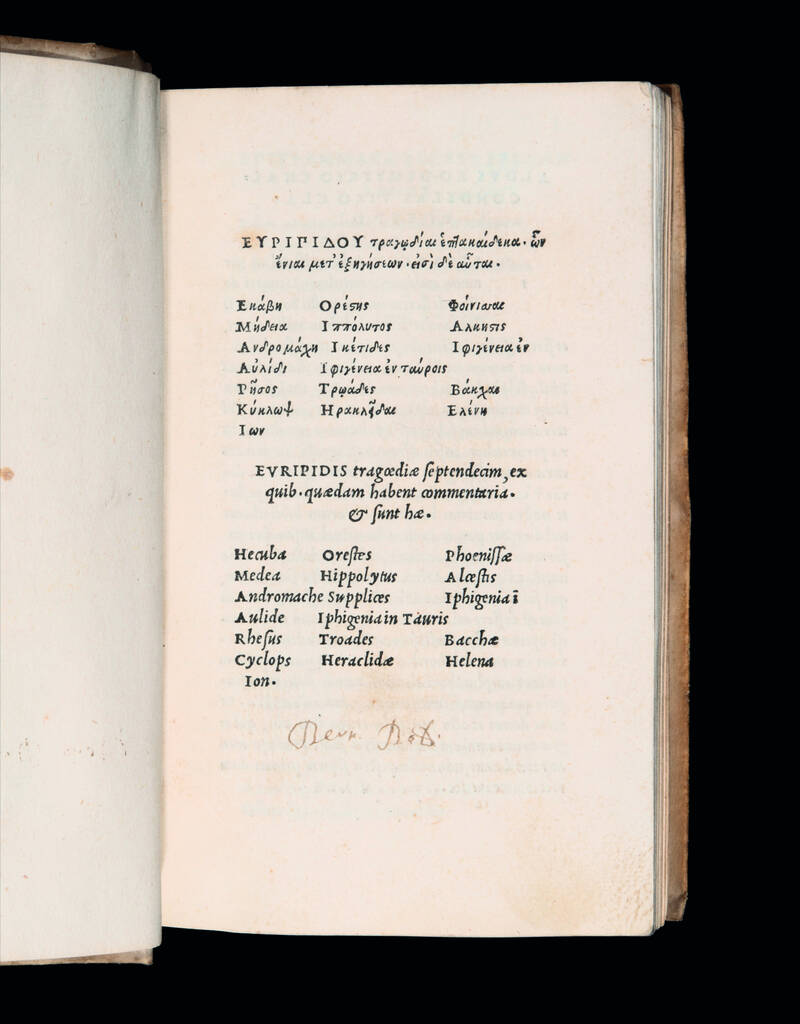
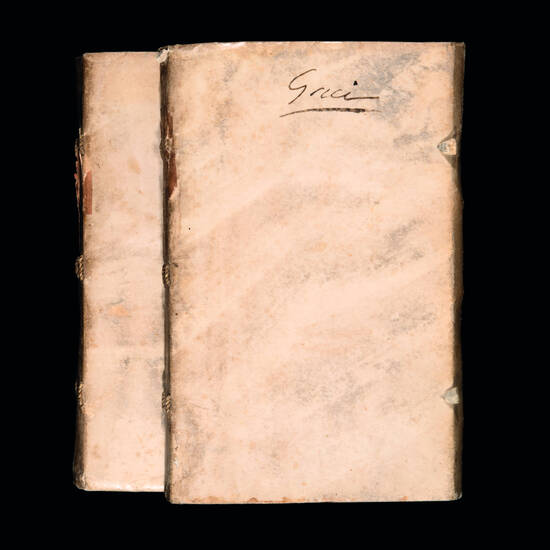
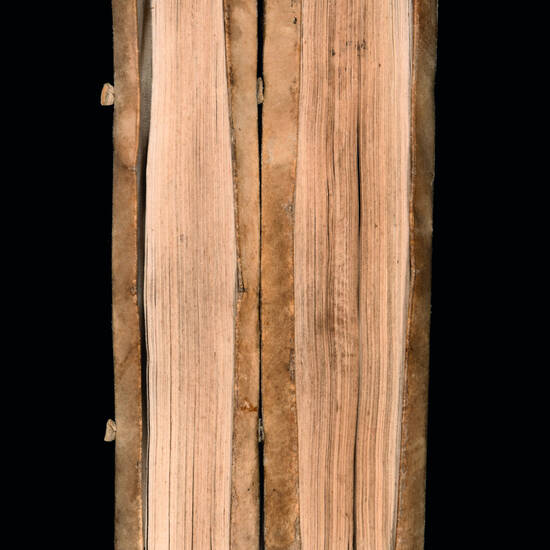

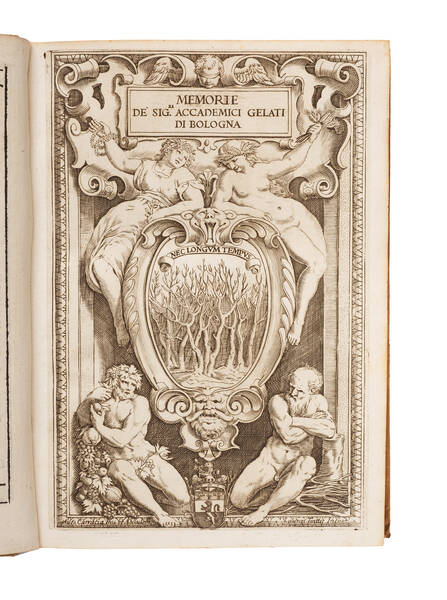
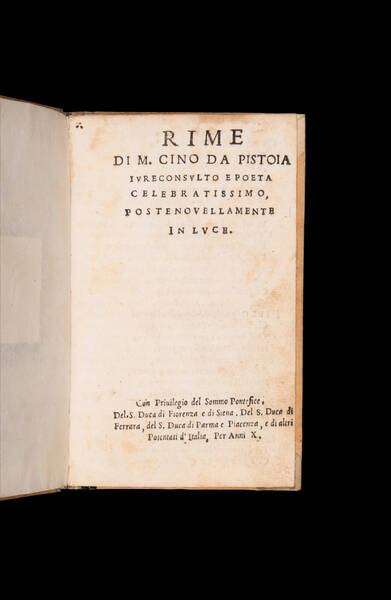
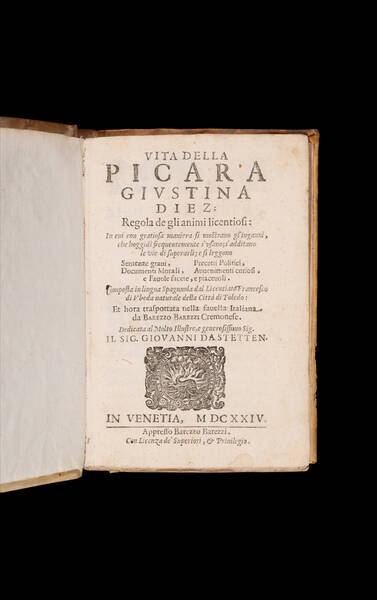
![Opera posthuma [Compendium grammatices linguae hebraeae]. Opera posthuma [Compendium grammatices linguae hebraeae].](https://www.medariquier.com/typo3temp/pics/9e46dbc214.jpg)
